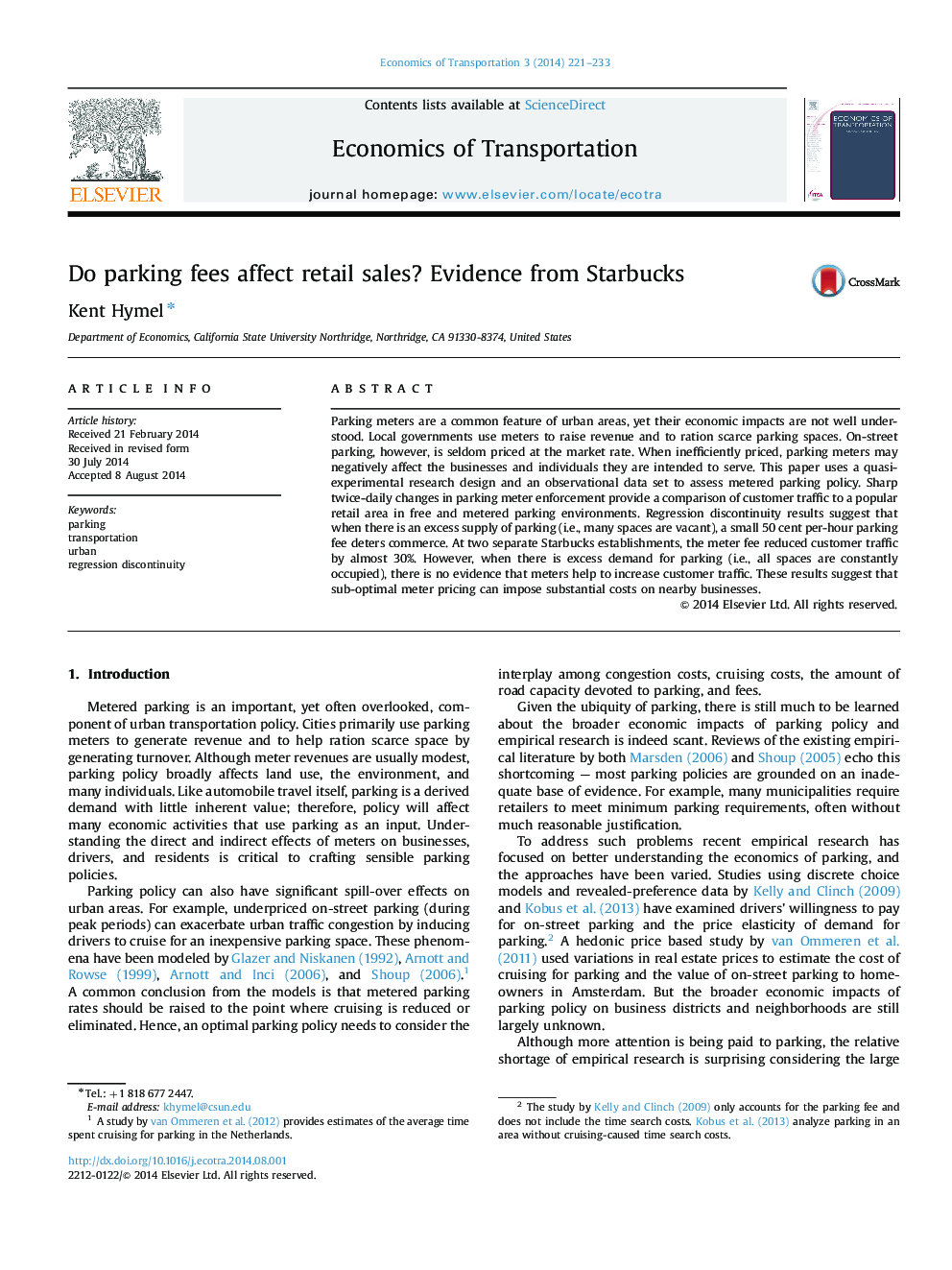| کد مقاله | کد نشریه | سال انتشار | مقاله انگلیسی | نسخه تمام متن |
|---|---|---|---|---|
| 5062870 | 1476656 | 2014 | 13 صفحه PDF | دانلود رایگان |
- The effect of parking meter fees on customer traffic and retail sales is analyzed.
- A regression discontinuity model is used to estimate the effect of fees.
- Parking fees significantly reduce customer traffic when the demand for parking is low.
- When parking is at capacity, lower than optimal fees do not increase customer traffic.
Parking meters are a common feature of urban areas, yet their economic impacts are not well understood. Local governments use meters to raise revenue and to ration scarce parking spaces. On-street parking, however, is seldom priced at the market rate. When inefficiently priced, parking meters may negatively affect the businesses and individuals they are intended to serve. This paper uses a quasi-experimental research design and an observational data set to assess metered parking policy. Sharp twice-daily changes in parking meter enforcement provide a comparison of customer traffic to a popular retail area in free and metered parking environments. Regression discontinuity results suggest that when there is an excess supply of parking (i.e., many spaces are vacant), a small 50 cent per-hour parking fee deters commerce. At two separate Starbucks establishments, the meter fee reduced customer traffic by almost 30%. However, when there is excess demand for parking (i.e., all spaces are constantly occupied), there is no evidence that meters help to increase customer traffic. These results suggest that sub-optimal meter pricing can impose substantial costs on nearby businesses.
Journal: Economics of Transportation - Volume 3, Issue 3, September 2014, Pages 221-233
